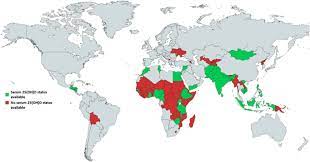Global financial leaders have cautioned that rising interest rates are adding pressure to low-income developing nations. Around 60% of these countries are at high risk of debt distress.
Public debt burdens have also worsened in developing nations due to consecutive global crises like Covid-19 pandemic and Russia’s invasion of Ukraine. Several nations which are facing heavy debt are simultaneously handling climate-related challenges or other conflicts.
The leading central banks around the world have taken strict measures to tighten monetary policy in order to combat rising inflation in the past year. Still, this could prove tricky for low-income countries, as they face increasing challenges in repaying their debts due to rising interest rates.
Initiative by Global economic bodies to counter the impacts of high interest rates:
In response, IMF (International Monetary Fund) and World Bank have introduced several relief measures, including the IMF-World Bank Debt Sustainability Framework, aimed to guide low-income countries in borrowing in a way that promotes public finance stability.
G20 framework was established in 2020. It offers grants to countries with unsustainable debts. Ghana, Chad, Ethiopia and Zambia have all sought debt relief under this project. However, Zambia, the first African country to default during the pandemic, has criticized the debt restructuring process as it believes its main creditors, international bondholders and China, have failed to reach an agreement.
Statements by Senior leaders at World bank:
With global growth slowing and interest rates still rising, World Bank Senior Managing Director- Axel van Trotsenburg informed that more collaborative efforts from international bodies and developed economies will be required to help developing countries.
“World economic growth is relatively weak and that has its implications, the increased interest rate means that a lot of capital has flowed out of developing countries — this is badly needed for investment, so many of the developing countries are under stress.” He further added.
Makhtar Diop, managing director of the International Finance Corporation (IFC) and a member of the World Bank Group, said the imminent maturity of much of the at-risk debt makes debt distress one of the main risks facing the global economy in the short term while answering concerns about the impact of interest rate increases on financial stability and debt sustainability in the developing world.























